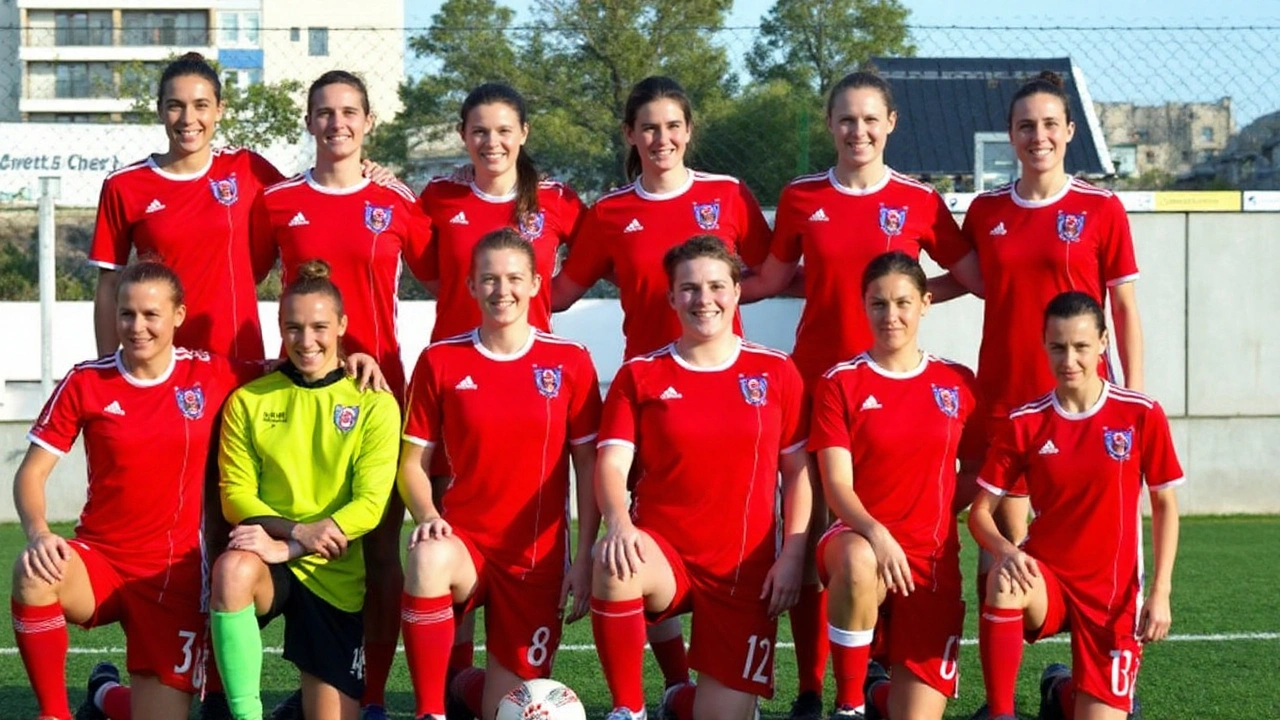Wales arrive on Europe’s biggest stage
First whistle, first roar, first time ever. Wales made their European Championship debut in Lucerne, and the scoreline couldn’t dull the feeling that something had shifted. The Netherlands won the opener 3-0 on July 5, but the story was bigger than a result: it was about a team stepping into a space they’ve chased for decades, carrying a nation that turned up in force to see them do it.
For Wales women's football, this was a landmark long in the making. The team only turned professional in 1993, after nearly half a century when the women’s game was effectively barred from mainstream competition in the UK. Since then, they’ve logged 246 official matches—modest by international standards—and still muscled their way into a 16-team finals where every inch is contested.
The draw didn’t bother with sentiment. Wales landed in what everyone’s calling the Group of Death alongside the Netherlands, England (the reigning European champions), and France. All three are elite, top‑10 nations with deep tournament experience and squads built on Champions League minutes. Wales came in ranked 30th, a place where courage, cohesion, and clever strategy aren’t optional—they’re oxygen.
Inside Allmend Stadion, you could hear that belief. Around 8,000 Welsh fans—bucket hats, red shirts, flags held high—marched roughly 2.5 kilometers from central Lucerne to the ground, a sea of song that matched the famous Dutch Orange contingent step for step. Even at 3-0 down, the Wales end burst into a full-throated chorus in the 84th minute, a defiant sound that said this journey isn’t measured only by a scoreboard.
A long time coming, and a long road ahead
Manager Rhian Wilkinson, a former international with a reputation for detail and balance, has preached composure and intent. The squad set up camp at a training base in Weinfelden, adjusting to Swiss conditions while drilling compact defensive work, quick transitions, and dead‑ball routines that can flip tight games. This is the template underdogs use at tournaments: stay in contests, pounce when the margins open, and play the situation as much as the opponent.
The opener against the Netherlands turned on moments. Vivianne Miedema’s strike in first‑half stoppage time was a gut punch—precise, clinical, the kind of finish world-class forwards make look routine. Chasing the game against a side that manipulates space as well as anyone is a hard ask, and the score stretched after the break. But Wales stayed organized, tried to break lines when they could, and left the pitch having banked 90 minutes of top-level tournament experience. That matters this early in a group like this.
What comes next is as tough as it gets. England’s depth can suffocate you. France’s athleticism and flair can punish the tiniest lapse. Wales will need to keep games tight, protect the penalty area, and squeeze value from set pieces—corners, long throws, free kicks that create chaos. Small wins inside matches—winning second balls, forcing turnovers high, managing the tempo—can stack into something meaningful late in the second half.
The fans, Y Wal Goch—the Red Wall—are already part of the competitive edge. That march in Lucerne wasn’t just a show; it was a message: you aren’t here alone. For a squad built on togetherness, that noise lifts legs in the 75th minute and sharpens focus at the next defensive restart. It also travels. Expect similar scenes wherever Wales play next in Switzerland.
The ripple effects back home are the other half of this story. Visibility changes things. When a Welsh kid turns on the TV and sees their national team at a major tournament, it resets what feels possible. Clubs and community programs will expect a bump in interest when everyone returns, and that’s where progress becomes permanent—more girls training regularly, more coaches qualified, more pitches booked on cold weeknights. Pathways matter, and this team is now a living billboard for them.
Leaders like Jess Fishlock and Sophie Ingle have spent years carrying the shirt through qualifying cycles that ended in near-misses. That context gives this tournament extra weight: it’s a culmination and a starting line at once. Wilkinson’s staff know it, too, which is why they’ve leaned into routines, recovery, and clear roles. Tournaments reward clarity. Uncertainty gets exposed fast at this level.
There’s room for smart tweaks without tearing up the approach. Against possession-heavy teams, Wales could drop into a back five out of possession, then push a wing-back higher when countering. Compact lines shrink passing lanes into the half-spaces and buy time for midfielders to reset shape. The other lever is tempo: slow it when the game tilts, speed it up after turnovers, and use set plays to pause the chaos and run something scripted.
In tournaments, qualification math always lurks in the background. Point here, draw there, goal difference if it gets tight. Wales don’t need a miracle; they need moments. One clean sheet, one decisive header from a corner, one breakaway finished with nerve—any of those can tilt a group that looks immovable on paper. Staying within reach deep into match two keeps hope alive for match three.
Regardless of what the final table says, the step Wales have taken is real and permanent. The ban years are long gone, the shoestring days are fading, and the national side now has a European Championship reference point. That shifts how sponsors look at the game, how broadcasters schedule coverage, and how families plan their weekends. It’s hard to overstate how valuable this is for the next five years.
On the ground, you could see what it meant. Between the river and the stadium, the Red Wall’s songs bounced off the city like a call-and-response with the team. In the mix zone, players wore the look of people who know they belong, even after a harsh lesson. In the stands, supporters were already talking about the next opponent, the travel plans for the next city, the chance to make a little noise in a tight match.
Watch for a few threads as the group stage unfolds:
- Selection and shape: Does Wales stick with a compact block or add a runner to threaten in behind earlier?
- Set-piece bite: Delivery has to be on point, and screens need to be crisp. One routine could unlock a result.
- Game-state control: Can they keep it level into the last 20 minutes, where pressure flips and favorites get edgy?
- Depth minutes: Smart rotation protects legs for the final group match, where fine margins often live.
Whatever happens next, the essence is clear: Wales have pushed through the ceiling. The scale of the task is obvious, but so is the progress. A few months ago, this was a dream. Now it’s a schedule, a training plan, and a stadium full of voices that don’t plan on going quiet anytime soon.






Write a comment